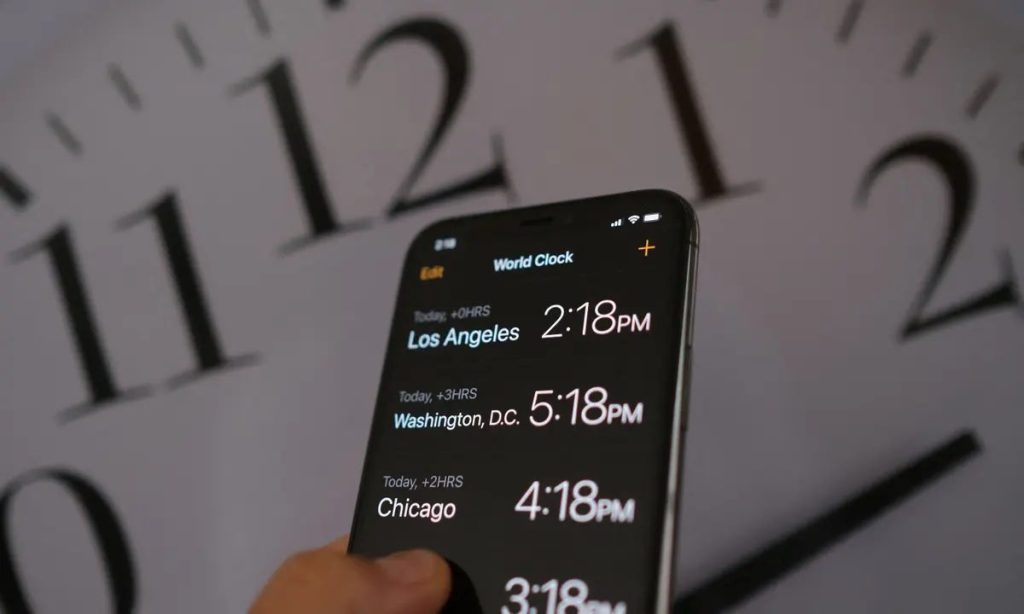Miami, a vibrant city known for its stunning beaches, thriving multicultural atmosphere, and bustling nightlife, is located in the southeastern part of Florida.
Different regions around the world, including the United States, observe daylight saving time to adjust their time schedules. It’s important to be aware of these changes when traveling.
In order to provide a comprehensive understanding without disruptions caused by DST alterations, this article will delve into the history behind these adjustments and explore whether or not Miami follows these practices.
What Is Daylight Saving Time?
Image Credit: Almanac
Daylight Saving Time (DST) is a seasonal time change measure implemented in various regions across the globe to make better use of natural daylight during the evening hours.
Advancing clocks forward by one hour during warmer months through daylight saving time (DST) can reduce energy consumption and promote outdoor activities by providing an extra hour of sunlight in the evenings.
In recent years, however, some states within the United States have sought to either maintain or eliminate DST due to its controversial nature and impact on residents’ well-being.
Does Miami Observe Daylight Saving Time?

Image Credit: Theguardian
Miami is in the Eastern Standard Time (EST) zone and, like most places in the United States, observes daylight saving time.
As per federal law, Florida changes time twice annually: clocks are advanced by one hour on the second Sunday of March and set back an hour on the first Sunday of November.
People need to be aware of daylight saving time adjustments when planning their schedules during transitional periods.
What Time Zone Is Miami In

Image Credit: Natgeofe
Situated in the Eastern Standard Time (EST) Zone, Miami adheres to a UTC-5 offset during standard time, known as ‘Miami Time Zone UTC’.
Interestingly, like many other regions within the United States, Florida participates in Daylight Saving Time (DST), which prompts clocks to move forward by one hour from early March until early November each year.
Travelers can search online for queries like “Does the time change in Florida tomorrow” or “When does Florida change time in the fall” to stay informed about upcoming time shifts.
During DST, visitors can enjoy more time exploring Miami’s beaches and nightlife as daylight extends into the evening..
Frequently Asked Questions
How Does The Change In Time Affect Daily Routines And Activities In Miami?
The alteration in time, commonly known as daylight saving time (DST), impacts daily routines and activities in Miami.
As the clocks are adjusted forward by one hour during the onset of DST, residents experience longer evenings with extended sunlight hours, which can lead to increased participation in outdoor recreational activities such as beach visits, sports events or dining al fresco at local restaurants.
And when the clocks revert back to standard time, shorter days may result in reduced engagement in outdoor pursuits and an increase in indoor leisure options like shopping malls or movie theaters.
The switch between DST and standard time can impact sleep patterns and well-being as people adjust to temporal changes, especially those who rely on public transportation that also adjusts their schedules accordingly.
Are There Any Specific Local Laws Or Regulations In Miami Related To Daylight Saving Time?
In Miami, as part of the state of Florida, local laws and regulations related to daylight saving time are governed by both state legislation and federal mandates.
In accordance with the Uniform Time Act of 1966, which established a standardized system for implementing daylight saving time across the United States, Miami observes this practice annually.
Efforts have been made in Florida’s legislature to adopt year-round daylight saving time, but congressional approval would be required before implementation.
What Are The Advantages And Disadvantages Of Observing Daylight Saving Time In Miami?
Saving Time In Miami?
Observing daylight saving time (DST) in Miami presents both advantages and disadvantages that can impact the daily lives of its residents.
Among the benefits, DST allows for extended evening daylight during the warmer months, promoting outdoor activities such as sports or leisurely walks, which contribute to a healthier lifestyle. Additionally, businesses may experience increased revenue from customers taking advantage of longer days for shopping and dining out.
Drawbacks of DST include disruptions to sleep patterns, negative impacts on health and well-being, and mixed results regarding energy conservation. Some studies show modest reductions in electricity consumption, while others argue the savings are negligible or offset by increased usage at other times.
How Do Miami Residents Feel About The Time Change, And Is There Any Ongoing Debate On This Topic?
Miami residents have mixed opinions on time change. Some like the longer daylight hours during Daylight Saving Time, while others worry about its impact on their daily routine and sleep.
The ongoing debate in Florida circles around potential legislation that could keep the state on permanent Daylight Saving Time, which would mean no more clock adjustments twice a year.
Proponents argue this could benefit tourism, reduce energy consumption, and improve overall well-being; however, opponents highlight possible negative impacts on school schedules and coordination with other states for business purposes.
How Do Other Cities In Florida Compare To Miami In Terms Of Observing Daylight Saving Time?
In the state of Florida, cities and towns generally observe Daylight Saving Time (DST) in a similar manner to Miami.
The entire state adheres to the federal mandate which requires clocks to be set forward one hour from standard time during the period between the second Sunday in March until the first Sunday in November.
This practice aims to make better use of daylight hours and conserve energy.
Opinions on DST vary among Florida cities, with some residents calling for its abolition or suggesting alternative solutions like year-round DST.
Despite these differing viewpoints, all cities within Florida currently follow the same guidelines when observing daylight saving time adjustments each year.
